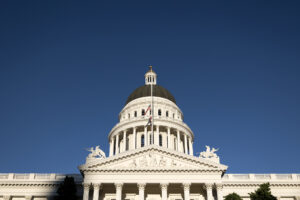Force multipliers: How one donor network is pushing the envelope on California campaign money

Sift through the campaign contributions to Robert Rivas, the Salinas Democrat angling to become the next speaker of the California Assembly, and a name keeps popping up: Govern For California.
The organization’s statewide chapter gave the maximum $9,800 to Rivas in 2021. So did its Marin chapter, Hollywood chapter, Golden Gate chapter, Palo Alto chapter and four others. In the past 14 months, 16 Govern For California chapters have given him a combined $116,000 — nearly a tenth of everything he’s raised this election cycle.
Over the last two years, Rivas’ 2022 reelection committee has been a top recipient of campaign contributions from the Govern For California network, according to a CalMatters analysis of state campaign finance records. During the same period, financial disclosure forms, lobbying reports and Govern For California emails show that his brother, Rick Rivas, has served as both a political advisor to the statewide organization and as a consultant to Robert Rivas’ campaign.
But Assemblymember Rivas is hardly the only beneficiary of Govern For California spending. In the 2022 election cycle so far, the network has donated more than $3 million to more than 110 candidates across California, the vast majority of the money going to 82 running for the state Senate and Assembly.
Govern For California characterizes its 18 chapters as “force multipliers” that amplify the influence of its donors on state politics and government. The 11-year-old organization — the brainchild of 68-year-old Stanford lecturer David Crane, and funded primarily by a group of Bay Area venture capitalists, tech executives and philanthropists — opposes what it regards as excessive sway of labor unions over state policy.
None of the campaign finance experts CalMatters spoke with said they thought Govern For California was doing anything illegal. But Ann Ravel, former head of the Federal Election Commission and California’s campaign finance agency, said its chapter donation operation was “undemocratic,” albeit similar to the model organized labor unions use.
Some experts also questioned whether it’s a way for its small cadre of wealthy donors to evade contribution caps designed to limit anyone from having outsized influence on state politics. Read more >>>